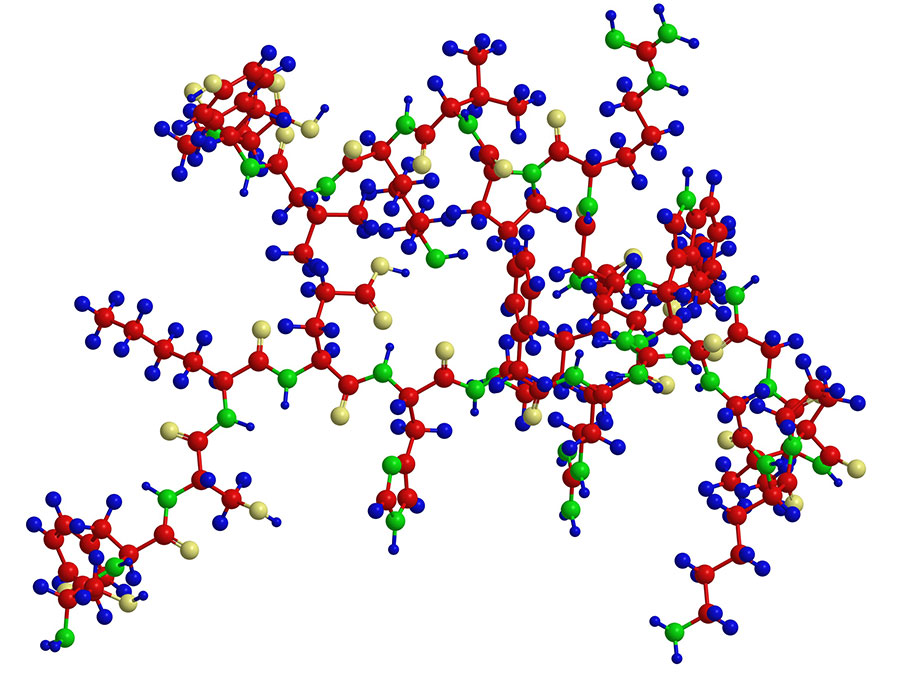At Integrative Health, we are constantly researching advancements in medicine & new holistic treatment options to better serve our patients. We are excited to announce that we have recently launched a new service option centered around the use of peptides, peptide therapy. Peptide therapy has gained increasing popularity in recent years and we are excited to add this option to our patients.
Peptides are amino acids, linked together in the form of chains. They are the building blocks of proteins. They act as structural components of cells and tissues, hormones, toxins, antibiotics, and enzymes. Being responsible for numerous biological functions in the body, their role is of utmost importance for health and vitality.
The benefits of peptide therapy range greatly and can be applied to patients who have all different kinds of needs. From more severe conditions like chronic fatigue syndrome, Hashimoto’s thyroiditis, Lyme disease, and fibromyalgia to less severe, like immune modulation, tissue-repair to fat loss and muscle building, peptide therapy has yielded positive results for patients with different problems. Perhaps you struggle with conditions like chronic pain, inflammation, weight management, low libido, stimulating growth hormones, anxiety and depression, joint and muscle repair, fuzzy mental clarity, insomnia, peptides can help with all of that and much more.
Peptide therapies usually have a “loading” period of 3-6 months before full effects and maximum benefit are noticed. In fact, unlike synthetic growth hormone that has negative side effects of long term use, peptides are natural and can be used indefinitely for maximum health benefit and little to no side-effects.
Most peptides come in an injectable form. The pharmacy will ship all supplies you will need and instructions. Using a tiny insulin syringe, you will give yourself a subcutaneous injection daily for 5 days a week. There is an oral peptide for those who do not want to do an injection, however, different peptides have different benefits. Our provider will discuss options with you during your consultation.
Thymosin Alpha-1
Thymosin Alpha-1, or TA1 for short, is a vital peptide comprised of 28 amino acids that is naturally produced within the thymus gland. Located between the lungs and behind the sternum, the thymus is responsible for the maturation and release of T-cells, or important immune cells. T-cell production is vital to our health as they are able to detect and destroy foreign invaders.
TA1 has been recognized to have a significant effect towards the immune system, serving a very important role for anyone who may be diagnosed with a depressed immune system or an infection. This vital peptide has been observed to contain antifungal and antibacterial properties that can treat tumor growth, enhance vaccine efficacy, and preserve the body against oxidative damage.
Thymosin Beta 4
Thymosin Beta 4, or TB4, is the main variation of thymosin in the body. It’s generally found in high concentrations in wounded tissue as well as various blood cells that deal in clotting, playing a vital role in the healing process. If the body sustains an injury, TB4 contributes to the creation of newer, healthier vessels in the traumatized region. This peptide also contains anti-inflammatory properties that can alleviate inflammation from infections, Lyme disease, influenza, and much more.
Growth Hormone Secretagogues (GHS’s)
This special classification of peptides provides therapeutic properties that promote growth hormone secretion, each varying slightly in terms of structure and purpose. Some GHS’s include:
- GHRP 2 – This special peptide reflects properties of ghrelin (the hunger hormone) to improve metabolism, appetite, and energy levels.
- GHRP 6 – Similar to GHRP 2, this peptide has a higher potency to release growth hormones, working to increase hormone production, body mass, and appetite while decreasing adiposity.
- CJC 1295 – This peptide provides similar benefits to that of human growth hormones. However, it is able to continuously benefit the body due to its ability to bond itself with proteins in the blood. This peptide also increase IGF-1, a vital growth factor, to promote weight loss, lean muscular growth, and greater sleep quality.
- Ipamorelin – This peptide distincts itself from others of its category. While it promotes growth hormone stimulation, it does not increase appetite. It does, however, enhance levels of other important peptides including cortisol, prolactin, acetylcholine, and aldosterone.
- Hexarelin – Deriving from GHRP 6, this peptide promotes an increase in muscular mass, bone density, and skin firmness while reducing body fat. Unlike other peptides, Hexarelin does not stimulate appetite levels.
BPC-157
BPC-157 is a peptide chain comprised of a series of amino acids that derives from a protein protein located within the stomach. This peptide has been observed to alleviate stomach ulcers, intestinal trauma including inflammatory disorders and fistulas, while promoting greater bone and joint health and growth.
Melanotan II
Melanotan II is a special peptide responsible for pigmentation within the hair and skin. Observed to not only enhance skin pigmentation, Melanotan II can also stimulate weight loss and enhance sexual drive.
 Bremelanotide PT 141
Bremelanotide PT 141
Bremelanotide PT 141 is a unique peptide dervied from Melanota II that can generate sexual libido in both women and men instantly with its administration. For men who have tried Viagra and other sexual enhancements, this peptide has been shown to be especially effective toward treating erectile dysfunction.
Epithalon
Epithalon is a peptide that can promote greater regulation of the cell cycle and activate the telomerase enzyme, providing a series of anti-aging benefits.
Cerebrolysin
Cerebrolysin is a very small peptide that works to stimulate metabolic activity within the brain, safeguarding neurons from harmful substances and improving the central nervous and peripheral systems. This peptide also enhances cognitive performance, improving memory capabilities, creativity, and motivation among others. It can also serve as a potential treatment to address symptoms of Alzheimer’s disease, head injuries, or stroke.
